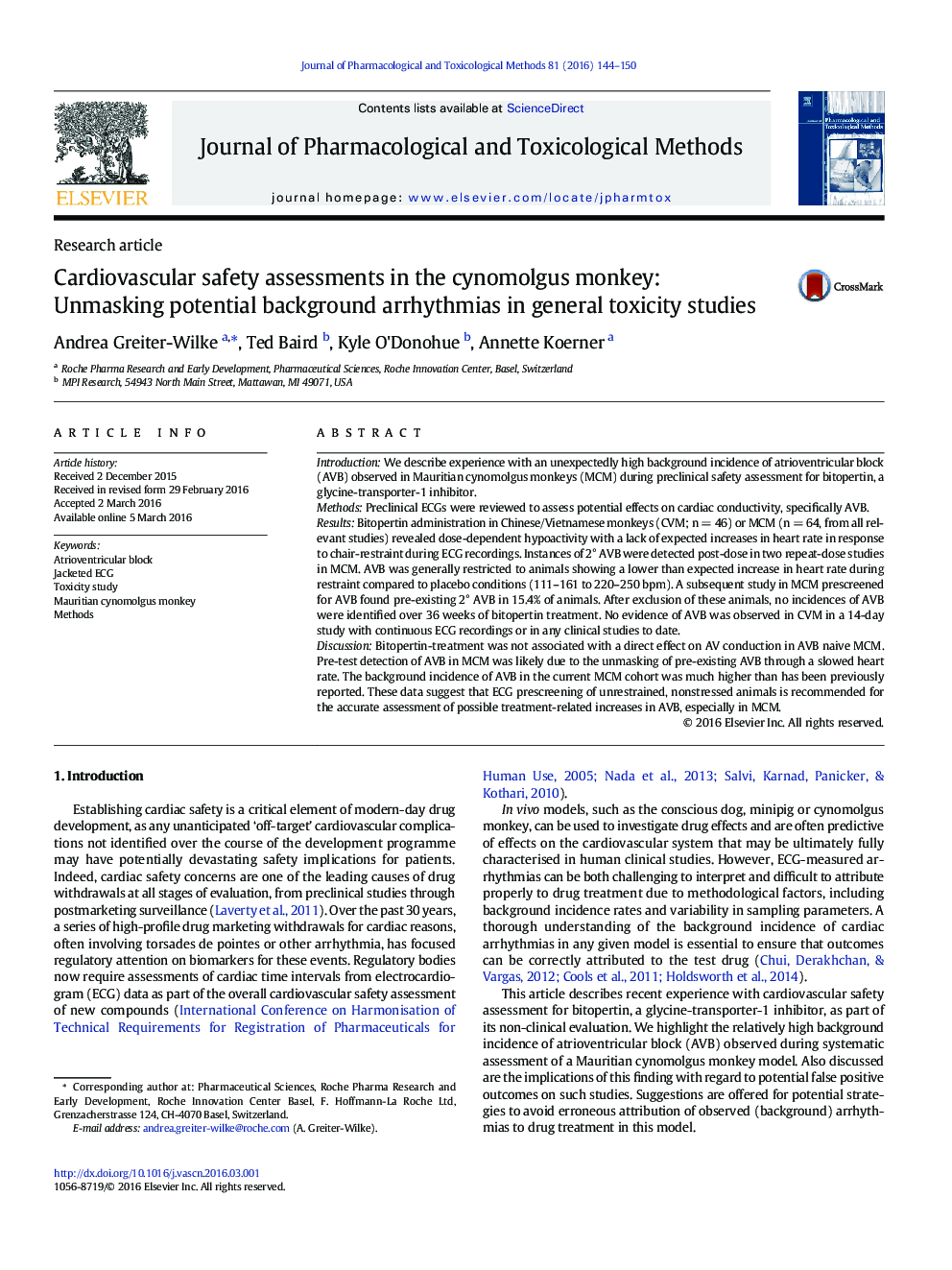| Article ID | Journal | Published Year | Pages | File Type |
|---|---|---|---|---|
| 5556607 | Journal of Pharmacological and Toxicological Methods | 2016 | 7 Pages |
IntroductionWe describe experience with an unexpectedly high background incidence of atrioventricular block (AVB) observed in Mauritian cynomolgus monkeys (MCM) during preclinical safety assessment for bitopertin, a glycine-transporter-1 inhibitor.MethodsPreclinical ECGs were reviewed to assess potential effects on cardiac conductivity, specifically AVB.ResultsBitopertin administration in Chinese/Vietnamese monkeys (CVM; n = 46) or MCM (n = 64, from all relevant studies) revealed dose-dependent hypoactivity with a lack of expected increases in heart rate in response to chair-restraint during ECG recordings. Instances of 2° AVB were detected post-dose in two repeat-dose studies in MCM. AVB was generally restricted to animals showing a lower than expected increase in heart rate during restraint compared to placebo conditions (111-161 to 220-250 bpm). A subsequent study in MCM prescreened for AVB found pre-existing 2° AVB in 15.4% of animals. After exclusion of these animals, no incidences of AVB were identified over 36 weeks of bitopertin treatment. No evidence of AVB was observed in CVM in a 14-day study with continuous ECG recordings or in any clinical studies to date.DiscussionBitopertin-treatment was not associated with a direct effect on AV conduction in AVB naive MCM. Pre-test detection of AVB in MCM was likely due to the unmasking of pre-existing AVB through a slowed heart rate. The background incidence of AVB in the current MCM cohort was much higher than has been previously reported. These data suggest that ECG prescreening of unrestrained, nonstressed animals is recommended for the accurate assessment of possible treatment-related increases in AVB, especially in MCM.
